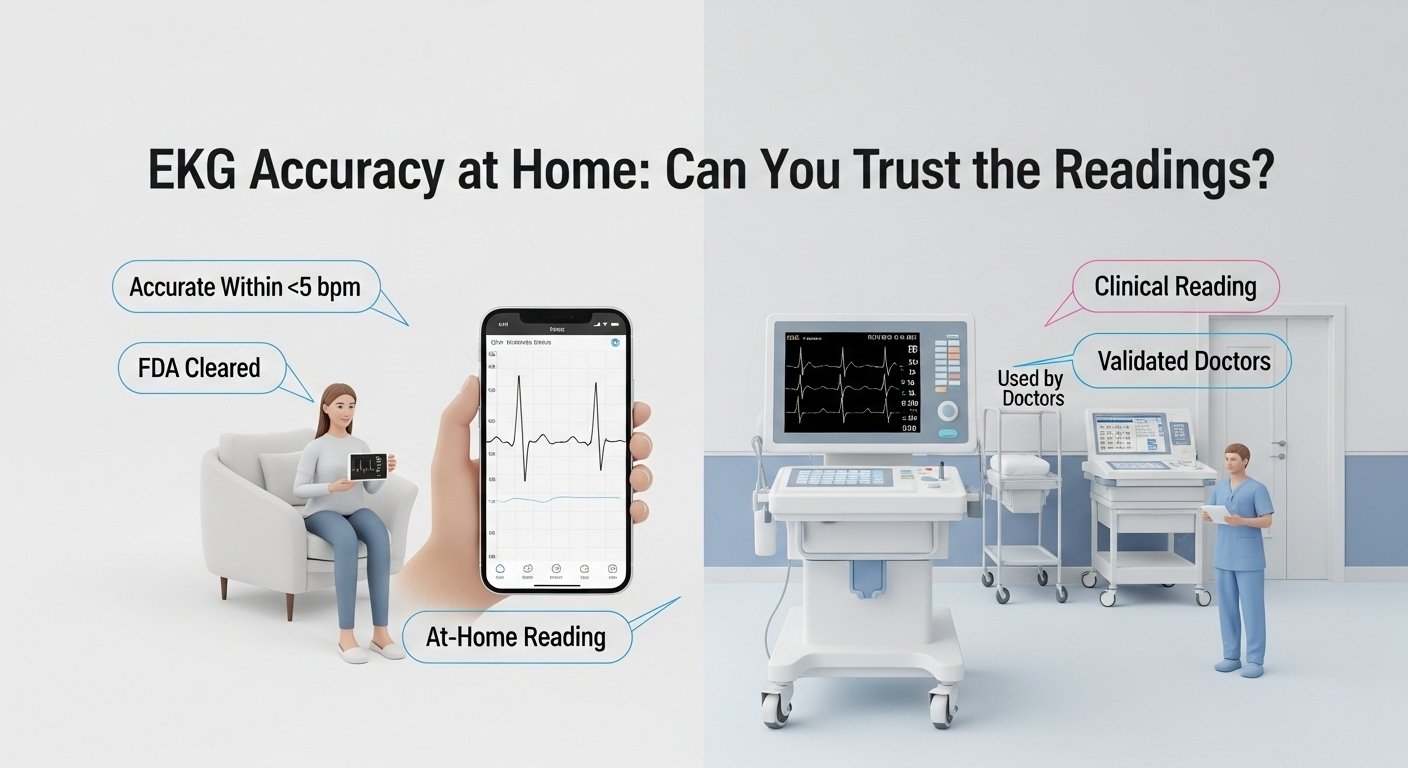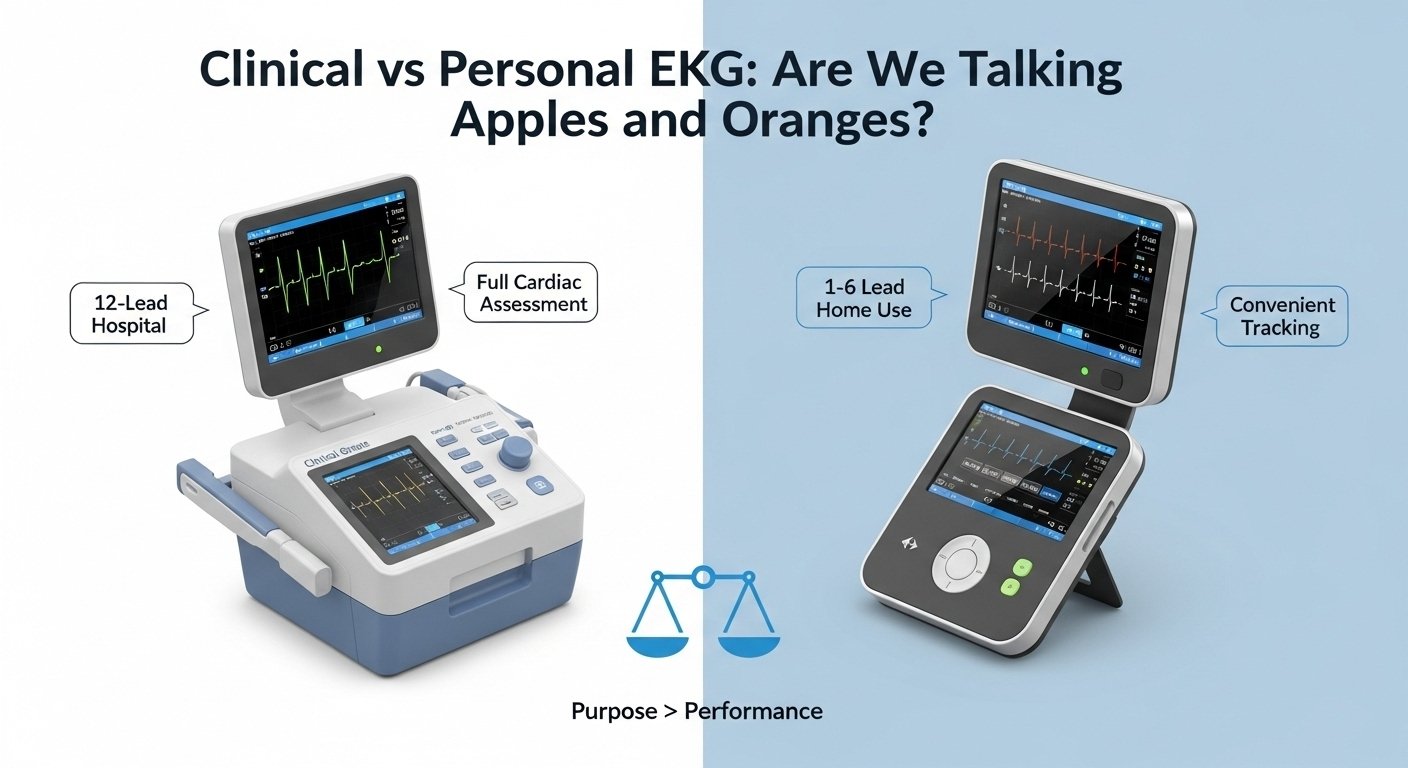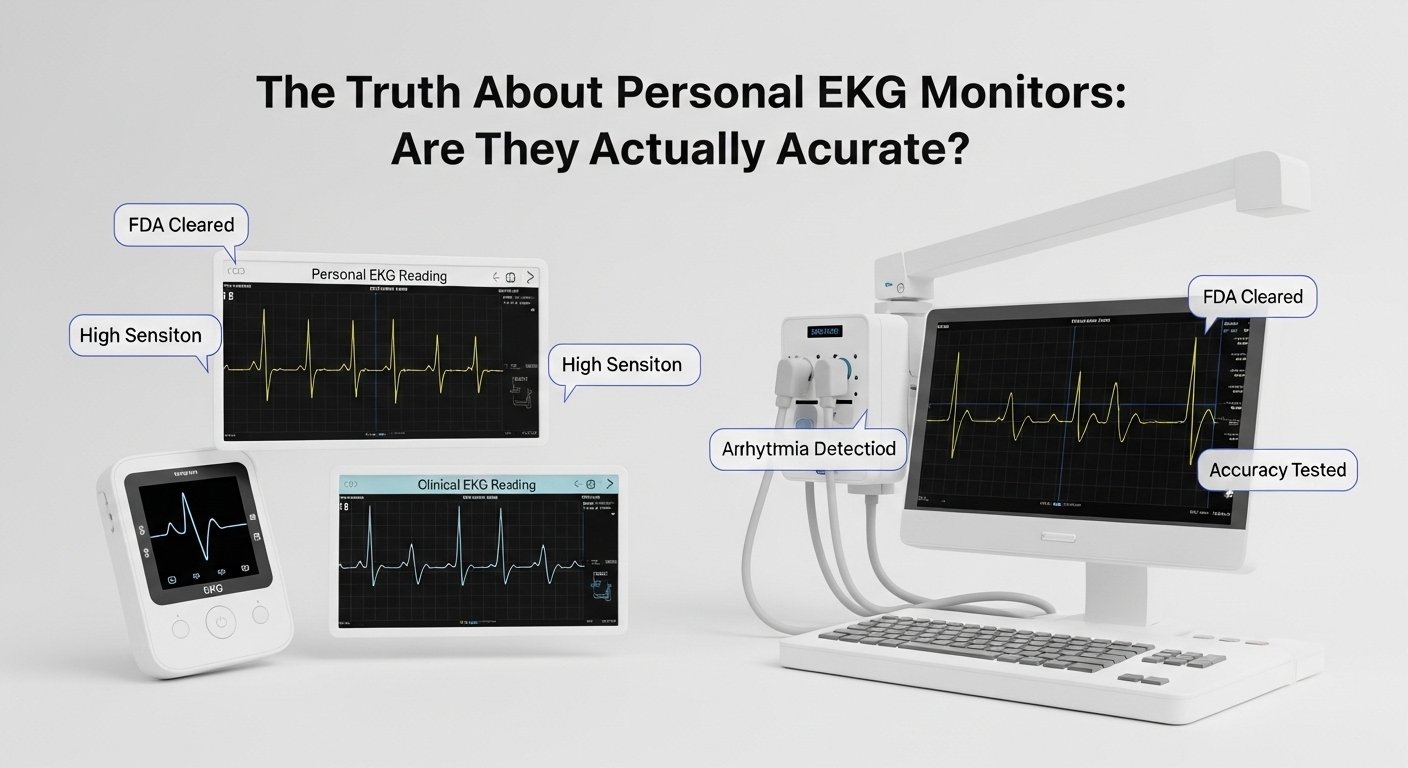Imagine this. You’re home alone. Your heart skips a beat, literally. It flutters, races, then settles. You wonder, should I be worried?
You could wait hours or days for a doctor’s appointment, or you could reach into your drawer, grab a small device, and get instant insight into what’s going on with your heart.
Welcome to the world of personal EKG monitors, tech gadgets turned heart health game-changers. But let’s be honest: Do they actually work, or are they just expensive toys?
Let’s break it all down and reveal the truth you actually need to know.
How Do Personal EKG Monitors Work?
Personal EKG monitors are compact devices that record your heart’s electrical activity. Unlike hospital machines with a jungle of wires, these fit in your pocket, sync with your phone, and offer results in seconds.
These monitors typically:
- Use one or two sensors to track heartbeat patterns
- Sync with apps that store and analyze data
- Allow you to export reports for your doctor
- Empower you to spot irregularities early
They’re fast, portable, and more user-friendly than ever. Think of them as your heart’s daily journal, quick to open and always available.
Still, speed means nothing if the readings aren’t reliable. Let’s explore how well they truly perform under pressure.
EKG Accuracy at Home: Can You Trust the Readings?
When you’re monitoring something as critical as your heartbeat, guesswork won’t cut it. Accuracy isn’t a luxury; it’s a requirement.
Personal EKG monitors have made headlines for their surprising reliability. Many are cleared by the FDA and validated in clinical studies. When used correctly, these devices can detect:
- Atrial fibrillation
- Bradycardia
- Tachycardia
- Other rhythm anomalies
So what affects their accuracy?
- Poor skin contact or dirty sensors
- Movement or shaky hands
- Not following instructions
In clinical trials, these devices have been shown to have EKG accuracy at home that rivals single-lead hospital equipment. That said, your technique matters. Follow the guidelines, and your results become remarkably trustworthy.
Curious how they compare to the machines doctors use? That’s up next.

Clinical vs Personal EKG: Are We Talking Apples and Oranges?
Traditional EKGs use 12 electrodes to build a full map of your heart’s electrical signals. They offer detail from every angle, perfect for diagnosing complex cardiac issues.
In contrast, personal EKG monitors usually offer one or two leads. On paper, that sounds limiting.
But in practice?
For most daily checks and early warnings, they perform impressively well. In fact:
- They’ve been used to detect serious conditions like AFib
- They offer reliable trend tracking over time
- They simplify reporting to your physician
So while they don’t replace clinical diagnostics, they don’t have to. They’re not trying to be everything. They’re designed to be accessible, fast, and practical.
Still unsure? Let’s hear from real users who’ve put them to the test.

What Real People Are Saying: EKG Machine Reviews That Matter
Skip the marketing. Go where the real truth lives: user reviews.
Across multiple platforms, personal EKG monitors are earning praise for their accuracy, ease of use, and ability to deliver peace of mind.
People love:
- Seeing patterns in heart behavior over time
- Sharing clean data reports with doctors
- Detecting irregular rhythms before symptoms escalate
Common concerns include:
- Confusing initial setup
- False positives from incorrect finger placement
- Anxiety from interpreting results alone
But one thing is clear: When users take the time to learn how to use them properly, the results speak for themselves.
Still, you might be asking: Are they reliable enough to use over weeks or months? Let’s talk about the long game.
At-Home ECG Reliability: Can You Count On It Over Time?
For many people, personal EKG devices aren’t a one-and-done thing. They’re tools for daily or weekly use, especially if you’re managing a chronic condition or concerned about heart health changes.
And here’s the good news.
Studies confirm that at-home ECG reliability holds strong across time when users follow best practices. These devices help:
- Detect patterns over days, weeks, or months
- Give early alerts that something’s off
- Offer reassurance when things feel right
The real secret? Consistency. If you use the monitor regularly and correctly, it becomes your heart’s best daily ally.
Not sure if you should be using one? Let’s dig into that next.
Who Should Be Using a Personal EKG Monitor?
You don’t need to be 70 and on medication to benefit from one of these. Personal EKG monitors are for everyday people who want more control and awareness.
You’re a good candidate if:
- You’ve had heart palpitations or skipped beats
- You have a family history of heart disease
- You’re recovering from a heart procedure
- You’re an athlete tracking post-exercise heart rhythms
- You want early warning signs, just in case
In short, they’re for anyone who wants to stop guessing and start knowing.
Still have questions? You’re not alone. Let’s tackle the most common ones.
Quickfire Q&A: What You’ve Been Wondering
Q1: Can a personal EKG detect a heart attack?
A: Not reliably. They’re excellent for rhythm issues like AFib but not for complex emergencies. Always call 911 for serious symptoms.
Q2: Do doctors actually take them seriously?
A: Yes. Many cardiologists welcome data from personal EKG devices to supplement diagnoses—just make sure your reports are clear and readable.
Q3: Will it cause unnecessary anxiety?
A: It might—if you’re constantly checking for problems. But used in moderation, it offers control, not panic.
Q4: Are these monitors hard to use?
A: Most are incredibly simple. One-button operation and smartphone sync make them user-friendly, even for beginners.
Personal EKG monitors are changing the way we approach heart health. They offer quick insights, surprising accuracy, and real peace of mind—all from the comfort of home. While they’re not a replacement for professional care, they’re a powerful tool for anyone who wants to stay ahead of potential heart issues. If you’re ready to stop guessing and start knowing, this is your sign to act.
Your heart talks; don’t miss what it’s saying. Find the right personal EKG monitor and take control of your health with confidence, clarity, and calm.


